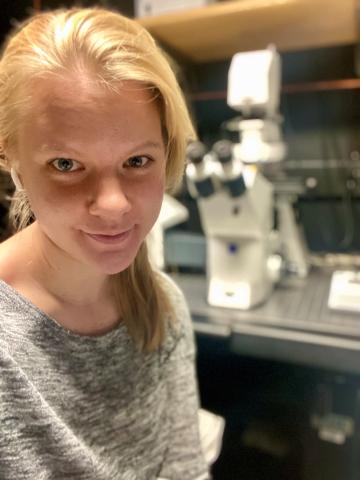Biology Seminar Series - Eliza Jaeger: A Distant Mirror
–
McCardell Bicentennial Hall 216276 Bicentennial Way
Middlebury, VT 05753 View in Campus Map
Open to the Public

Title: A distant mirror: What salamander learning can teach us about neural circuit evolution
Talk Description: Recent advances in single-cell RNA sequencing technology allow us to compare the neuron types that are expressed in the brains of tetrapods (amphibians, reptiles, and mammals) that diverged from one another over 350 million years ago. These comparisons give us clues about which neural circuits have been evolutionarily conserved across species, and which are reptilian and mammalian novelties. Guided by these clues, we can study how these circuits contribute to learning and memory in a species of salamander, Pleurodeles waltl. Understanding how the amphibian brain forms learned representations will help to uncover whether conserved cell types not only have similar transcriptomes, but also functional roles.
Bio: Eliza graduated from Middlebury College in 2017, with a major in Neuroscience and a minor in Anthropology. While at Middlebury she worked in the Spritzer Lab, helping to understand how androgens shape spatial memory in rodents. After graduating, she worked as a research assistant in Richard Axel’s lab at Columbia University’s Zuckerman Institute, to uncover how aversive experiences in male mice can be passed down epigenetically across generations. Now a PhD candidate and NSF Graduate Research Fellow in Maria Tosches’ in Biological Sciences at Columbia, she is establishing behavioral and viral tools to understand how different fields of the amphibian pallium contribute to learning and memory.
- Sponsored by:
- Biology and Neuroscience
Contact Organizer
Thompson, Missey
mathomps@middlebury.edu
443-5258

